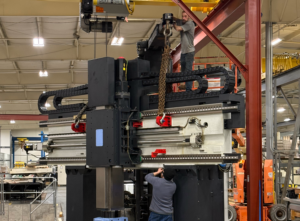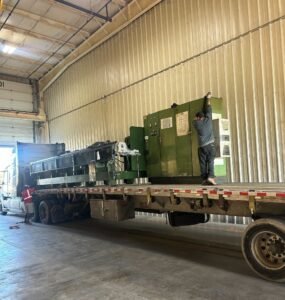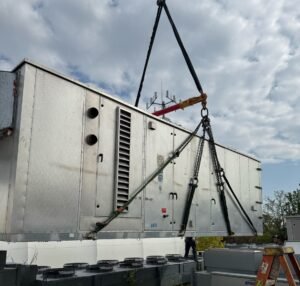In the world of industrial construction, the path from idea to realization is fraught with challenges and intricate tasks. To address these complexities, turnkey services have emerged as a comprehensive solution, providing an end-to-end approach to project management. From the initial concept to the final execution, turnkey services have greatly streamlined the construction process, ensuring a smooth and efficient experience for clients. This article delves into the intricacies of turnkey services in industrial construction, exploring their significance, benefits, and challenges.
Understanding Turnkey Services in Industrial Construction
Industrial construction projects are known for their complexity, demanding a holistic approach to navigate the various stages of development. Turnkey services provide a complete solution that covers every aspect of the construction process. This section delves into the core components of turnkey services, outlining their scope and significance in the industrial construction landscape.
Defining the Scope of Turnkey Services
To grasp turnkey services, it’s crucial to define their scope within the industrial construction domain. This section elucidates the various dimensions covered under turnkey services, including design, procurement, construction, and project management. By encapsulating these crucial components, turnkey services offer clients a comprehensive solution, minimizing the need for multiple stakeholders and simplifying the overall project management process.
The Significance of Turnkey Services in Industrial Construction
The significance of turnkey services in industrial construction cannot be overstated. This section delves into the myriad benefits that turnkey services offer, such as streamlined communication, enhanced accountability, and accelerated project timelines. By entrusting a single entity to oversee the entire construction process, turnkey services mitigate the risks associated with disjointed coordination and communication breakdowns, ensuring timely and cost-effective project completion.
The Process of Implementing Turnkey Services
Implementing turnkey services in industrial construction requires a well-defined and systematic approach. From initial conceptualization to final execution, this section outlines the step-by-step process involved in integrating turnkey services, highlighting key milestones and critical considerations along the way.
Initial Planning and Design Phase
The first phase in implementing turnkey services involves meticulous planning and comprehensive design. This subsection outlines critical considerations during the planning phase, including feasibility studies, site assessments, and conceptualization. It emphasizes the importance of integrating client requirements, industry standards, and technological advancements to establish a robust foundation for the subsequent stages of the project.
Procurement and Resource Management
Efficient procurement and resource management are pivotal in implementing turnkey services in industrial construction. This subsection delves into the intricacies of sourcing materials, equipment, and skilled labor, highlighting the significance of strategic procurement practices to ensure timely resource availability. It also emphasizes the role of efficient resource management in optimizing costs and enhancing overall project efficiency.
Challenges and Future Prospects of Turnkey Services in Industrial Construction
Despite their benefits, turnkey services in industrial construction encounter challenges and complexities. This section addresses key hurdles during the implementation of turnkey services, as well as future prospects and innovations poised to reshape the industrial construction landscape.
Navigating Regulatory and Compliance Challenges
One of the primary challenges faced by turnkey services in industrial construction is navigating regulatory frameworks and compliance standards. This subsection delves into the multifaceted nature of regulatory challenges, emphasizing the need for proactive strategies and meticulous adherence to industry-specific guidelines to ensure seamless project execution.
Embracing Technological Advancements and Sustainability
The future of turnkey services in industrial construction lies in adopting technological advancements and promoting sustainable practices. This subsection explores the evolving role of technology, such as Building Information Modeling (BIM) and advanced automation, in enhancing project efficiency and optimizing resource utilization. It also highlights the growing emphasis on sustainable construction practices, underscoring the pivotal role of turnkey services in promoting eco-friendly and energy-efficient solutions.
Conclusion
In the realm of industrial construction, turnkey services have transformed project management, fostering efficiency, accountability, and timely project delivery. By integrating various facets of the construction process, turnkey services have streamlined project management significantly. As the industrial construction landscape continues to evolve, the role of turnkey services is set to expand, ushering in a new era of seamless and sustainable construction practices.














